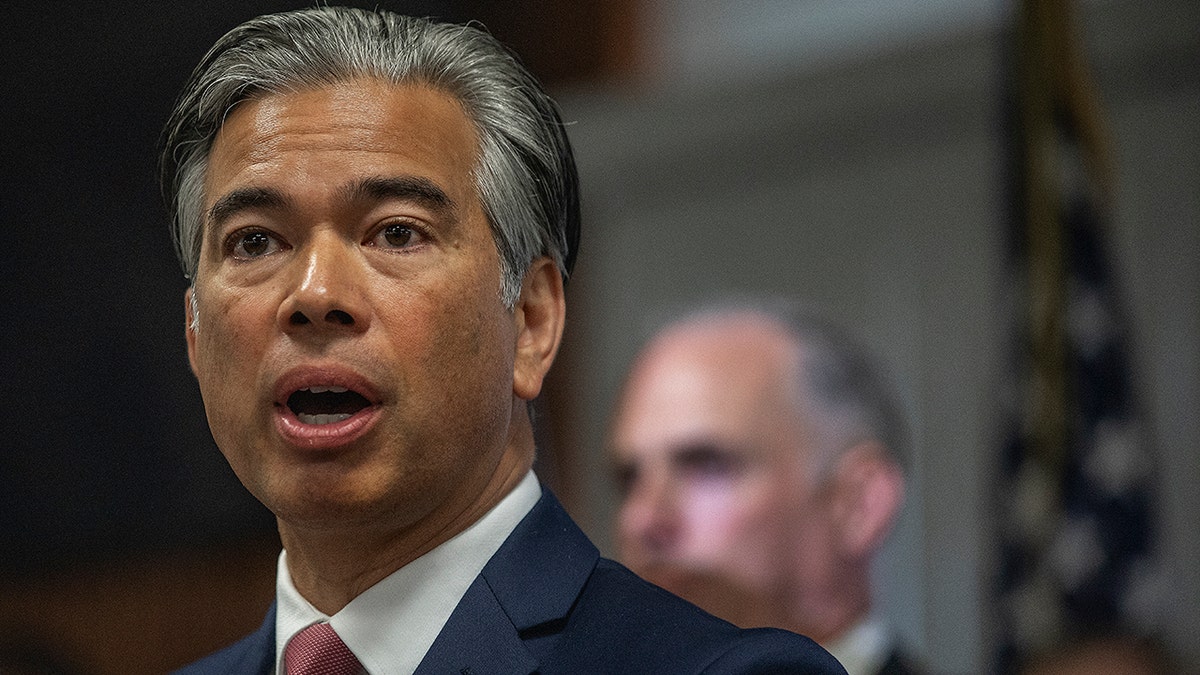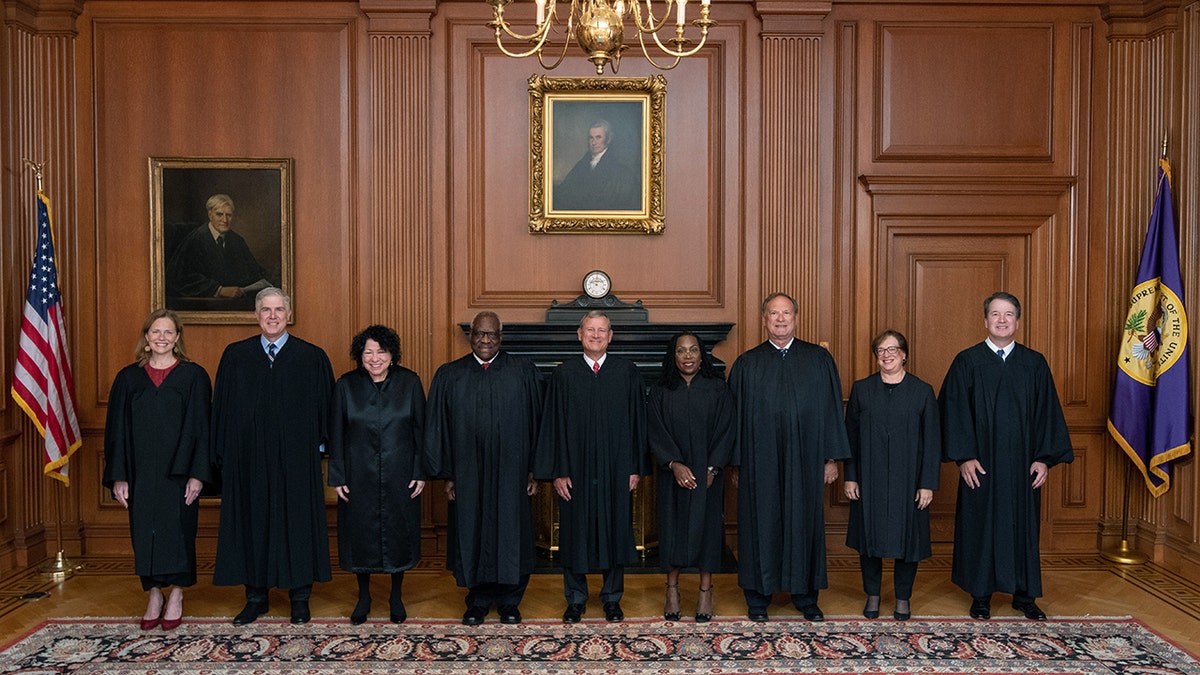Supreme Court begins new term with controversial cases on the docket
Judicial Crisis Network President Carrie Severino previewed the cases to look for on 'Sunday Night in America with Trey Gowdy.'
California is leading a group of 22 states whose Democratic attorneys general are pushing the Supreme Court to reject arguments by North Carolina that its state court improperly invalidated the state's congressional redistricting plan.
North Carolina has argued that its state court engaged in "unfettered policymaking" by rejecting the map, even though it could not point to any specific legal violation in how the map was designed. The state says the court based its objection on the argument that the map favored Republicans, and that it, therefore, violated the broad goal of ensuring "free" and "fair" elections.
The state's argument is based on the "independent state legislature theory," which says only the legislature has the power to regulate federal elections under the Constitution.
Hillary Clinton argued last week that a decision by the Supreme Court to invalidate the state court ruling would amount to giving state legislatures the "power to overturn presidential elections," a claim that legal experts dismissed. Late last week, the 22 Democrat-led states offered their own dire warnings about what it would mean to rule in favor of North Carolina.

California Attorney General Rob Bonta announced a probe into the re-districting process in Los Angeles after leaked recordings caught some council members discussing how to create districts to benefit themselves. (Mel Melcon / Los Angeles Times via Getty Images)
California Attorney Genreal Rob Bonta called North Carolina's legal theory "extreme" and "a recipe for disaster for elections nationwide."
"States across the country run elections not just through legislation, but through their state constitutions, judicial decisions, voter initiatives, and state and local elections officials," Bonta said.
Maura Healy, attorney general for Massachusetts who is running for governor of the Commonwealth, called on the Supreme Court to "reject this undemocratic and fringe theory and to respect the principles safeguarded by our Constitution."
In their brief, the AGs argue that the North Carolina lawmakers' theory "taken to its extreme, could also hamstring election administrators who supply many crucial details regarding the manner of elections." They said applying the "legislature-only theory" to every aspect of voting procedures, like stripping authority of state officials to choose voting locations, would create logistical chaos.
'THE VIEW' EXPLODES AFTER TED CRUZ CALLS OUT PAST DEMOCRATS ON QUESTIONING ELECTION RESULTS

Attorney General Maura Healey, left, with Andrea Campbell after voting at Lower Mills Library in Dorchester Center Sept. 6 in Boston. (David L. Ryan/The Boston Globe via Getty Images)
The group also said such an "extreme reading of the Elections Clause" could bring on heavy volumes of litigation against states in federal courts, which the AGs argue would be "destabalizing" to elections.
Some legal experts rejected the 22 state AGs' theory, and said they are overstating what is actually at stake before the Supreme Court.
"It's disappointing but not surprising to see Democratic state attorneys general jumping on the bandwagon to push the Left's disinformation nonsense," Carrie Severino, president of JCN, told Fox News Digital. "The Left can't stand that we have a Court that is committed to the rule of law, so they resort to outright dishonesty."
HILLARY CLINTON ACCUSES GOP OF SCHEMING TO 'LITERALLY STEAL THE NEXT PRESIDENTIAL ELECTION'

On June 30, 2022, Justice Jackson took the oaths of office to become the 104th Associate Justice of the Supreme Court of the United States. (Collection of the Supreme Court of the United States via Getty Images)
University of Iowa Law professor Derek Muller, whose amicus brief in the case agreed with the AGs' position that the court should affirm North Carolina Supreme Court's decision, still said he is "skeptical that any theory the Court embraces would be extreme."
"If it finds for the legislature, it will likely find some outer bound to what state courts can do, not cut them out of the process entirely," Muller said.
CLICK HERE TO GET THE FOX NEWS APP
The case will be heard at the Supreme Court on Dec. 7.





